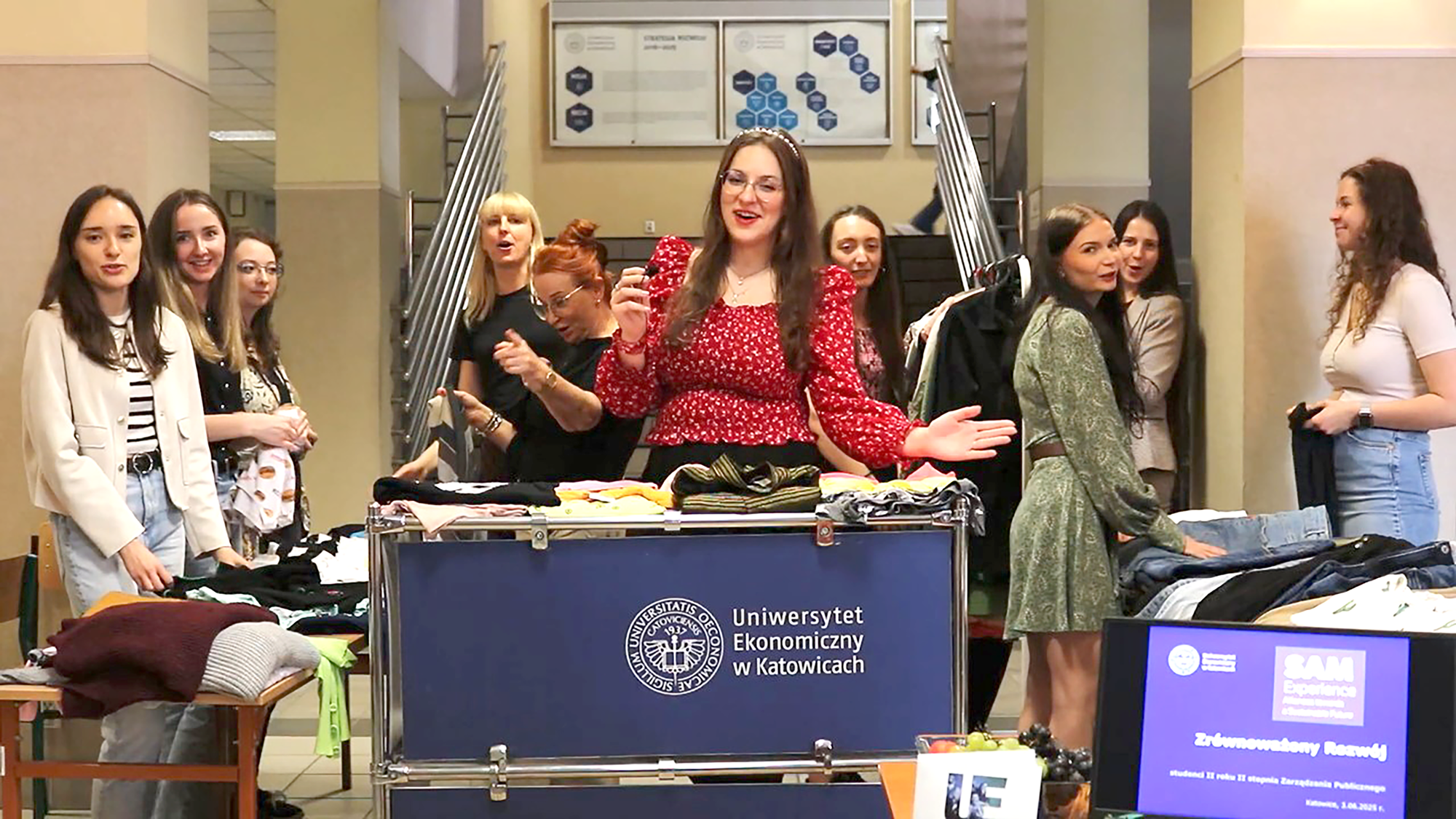
Clothes swapping, or clothing exchange, is an increasingly popular consumer practice that combines ecology, economics, and social responsibility. Although its modern name originated in Anglo-Saxon countries, the concept itself is deeply rooted in community and barter traditions. Today, swapping is becoming a tool for achieving the goals of the circular economy and activities supporting the green transformation. Therefore, on June 3, 2025, at the University of Economics in Katowice, students of Public Management organized the “Give Clothes a Second Life” campaign (second edition). During the event, participants could bring clothes they no longer wear and exchange them for others – in a cashless, ecological, and trust-based way. The initiative not only promoted responsible consumption but also created an opportunity to reflect on how our everyday decisions impact the environment.
The event is part of broader trends observed in Europe. In countries such as Sweden, the Netherlands, and Germany, regular swap events have become part of urban environmental culture. The number of initiatives promoting clothing sharing is also growing in Poland, and universities like UE Katowice are becoming venues for testing and implementing these initiatives in practice. The SAMExperience project enables not only the local implementation of such initiatives but also their international promotion and adaptation in other social and cultural contexts.
Clothing sharing is a practice that has a real impact on reducing the negative impacts of so-called fast fashion. Textile production generates enormous amounts of waste and greenhouse gas emissions – according to the Ellen MacArthur Foundation, the clothing industry is responsible for 10% of global emissions. Extending the lifespan of clothes through sharing can significantly reduce environmental pressure. But equally important is the cultural aspect – changing habits, consumption patterns, and the perception of clothes not as disposable goods but as a social good.
By organizing the event at UE Katowice, students not only implemented an educational project but also implemented the principles of a sustainable development strategy. It is through activities such as the “Give Clothes a Second Life” campaign that the potential of young people to be leaders in environmental change – at the local, European, and global levels – is revealed.
Written by the University of Economics in Katowice team (Poland)

